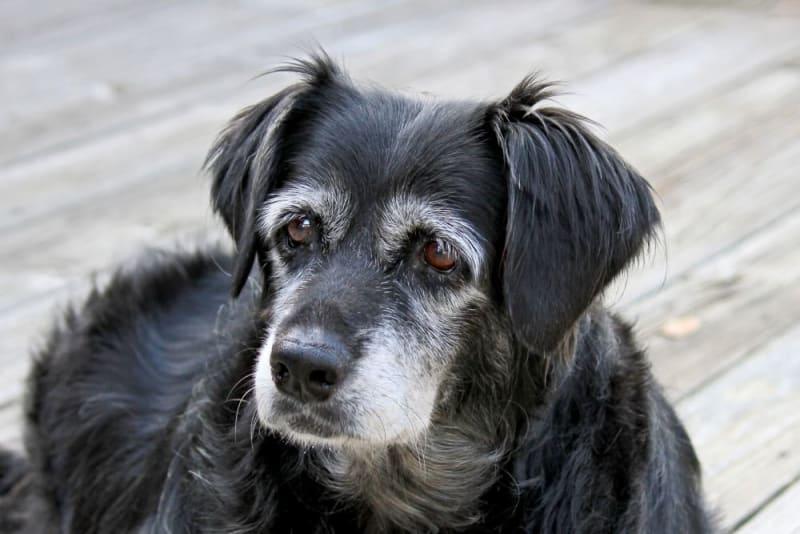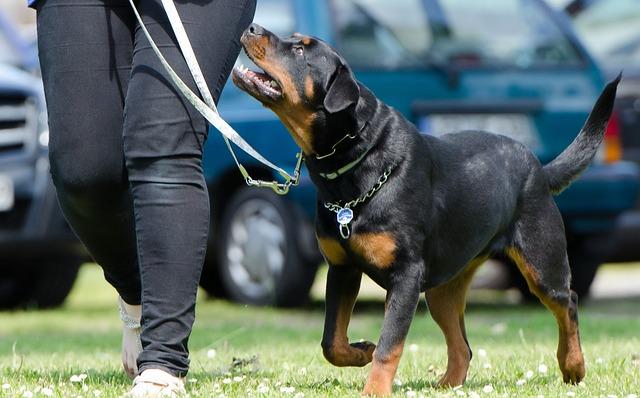Potty training can be a challenging endeavor, even more so when it involves older dogs who have developed some less-than-ideal habits over the years. Whether you’ve recently adopted an older furry friend or your long-time companion has started to regress in their bathroom behaviors, it’s important to approach the situation with patience and understanding. In this article, we’ll explore effective potty training solutions tailored specifically for older dogs, offering guidance and support to help you and your canine companion navigate this journey together. With a little dedication and the right techniques, you can help your dog overcome these hurdles, strengthening the bond you share and ensuring a cleaner, happier home for all.
Understanding Your Older Dogs Needs and Challenges
As our beloved furry companions age, they might develop certain habits that require a little extra patience and understanding, especially when it comes to potty training. Older dogs might face challenges such as decreased bladder control or confusion due to cognitive decline. Here are some effective strategies to help manage these issues:
- Establish a Routine: Dogs thrive on routine. Ensure you take your dog out at the same times every day. Consistency can help reinforce good habits.
- Monitor Their Diet: Pay attention to what and when your dog eats and drinks. This can help you predict when they might need to go out.
- Increase Bathroom Breaks: As dogs age, they may need to go outside more frequently. Consider adding more breaks to prevent accidents.
- Create a Safe Space: Use baby gates or playpens to limit your dog’s access to areas where they might have accidents. This can also make clean-up easier.
- Positive Reinforcement: Reward your dog with treats or praise immediately after they successfully go outside. Positive reinforcement can be a powerful motivator.
Remember, the key is to approach these challenges with patience and empathy. With the right strategies, you can help your older dog feel comfortable and confident in their environment, while also maintaining a clean and happy home.

Creating a Consistent Routine for Success
Creating a structured and predictable environment is essential when tackling the challenge of retraining older dogs with ingrained potty habits. Begin by establishing a consistent daily schedule that aligns with your dog’s natural rhythms. Regular feeding times lead to predictable bathroom needs, making it easier to anticipate and manage their bathroom breaks. Consider these key elements when structuring your routine:
- Frequent Breaks: Ensure that bathroom breaks are frequent and at the same times each day. Older dogs may need more opportunities to relieve themselves, so plan for breaks after meals, playtime, and naps.
- Designated Areas: Choose a specific spot in your yard or on walks where your dog should go potty. Consistently taking them to this location helps reinforce the behavior.
- Positive Reinforcement: Reward your dog with treats or affection immediately after they successfully go in the right spot. This reinforces good behavior and encourages them to repeat it.
By maintaining a steady routine, you provide your older dog with the structure they need to break old habits and form new, positive ones. Consistency is key, and patience is your ally in this journey. With time, your furry friend will adapt to the new routine, leading to a more harmonious household.
Positive Reinforcement Techniques to Encourage Good Behavior
- Praise and Treats: Shower your dog with affection and tasty treats every time they successfully use the potty area. A joyful voice and a gentle pat on the back can work wonders, reinforcing the positive behavior. Treats should be small and healthy, just enough to show your appreciation.
- Consistency is Key: Stick to a regular schedule for potty breaks. Take your dog out at the same times each day, and soon they will start to anticipate these moments. Consistency helps in building a routine, making it easier for your dog to learn when and where it’s appropriate to go.
- Use Cue Words: Incorporate a specific word or phrase each time you take your dog to the potty spot. Over time, your dog will associate this cue with the action, making it easier for them to understand what is expected.
- Celebrate Small Wins: Remember that every small step forward is a victory. If your dog has a day with fewer accidents, celebrate it! Positive reinforcement isn’t just about rewarding the end goal but also recognizing progress along the way.
- Stay Calm and Patient: Patience is your best ally. Older dogs may take a little longer to break old habits, but staying calm and composed will help them feel secure and loved, creating a positive learning environment.
By integrating these techniques into your daily routine, you can effectively guide your older dog towards better habits. Every dog is different, so find the combination of techniques that resonates best with your furry friend, ensuring that training is both effective and enjoyable for both of you.
Addressing Accidents with Patience and Compassion
When accidents occur, it’s crucial to approach the situation with both understanding and empathy. Older dogs may struggle with changing their habits, but with the right strategies, you can guide them towards better behavior. First and foremost, maintain a calm demeanor. Scolding or showing frustration can increase anxiety, making the issue worse. Instead, focus on positive reinforcement to encourage desired actions. Offer treats, affection, or a favorite toy whenever your dog successfully follows the potty routine.
- Establish a Routine: Dogs thrive on consistency. Take your dog out at the same times each day, such as after meals, playtime, and naps.
- Use a Command: Introduce a specific word or phrase like “Go potty” when you take them outside, so they associate it with the action.
- Clean Up Thoroughly: Use enzymatic cleaners to remove odors from accidents inside, preventing them from returning to the same spot.
- Monitor Their Diet: Ensure their diet is suitable for their age and health to avoid digestive issues that might lead to accidents.
Remember, every dog is unique, and patience is key. Celebrate small victories and stay committed to the process. With love and consistency, your older dog can unlearn old habits and embrace new, more appropriate ones.

